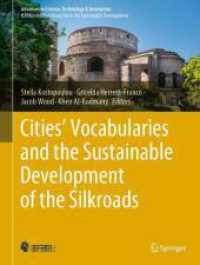- ホーム
- > 洋書
- > 英文書
- > Science / Mathematics
Full Description
The first section is dedicated to classroom practices and beliefs regarding those practices, taking a look at prospective or practicing teachers' views of different practices such as decision-making, the roles of explanations, problem-solving, patterning, and the use of play.








